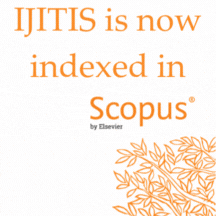On a Comparative Analysis of Research Performance Trends in Western Balkans through Peer Reviewed Indexing Databases
DOI:
https://doi.org/10.15157/IJITIS.2024.7.4.147-156Keywords:
Research performance, Impact of Research, Research Indexing, Time series models, Statistical Trends, Western BalkansAbstract
In order to be published in scientific journals and conferences, the results of every systematic study must be presented in the form of a research report or paper that satisfies the standards established by the scientific community during centuries of development. It is well acknowledged that the output of research is what defines its performance. Because there are millions of researchers in the world, there has been a significant increase in demand in recent years for boosting the visibility of research outcomes. Every research group aims to maintain its research efforts and obtain further funding by maximizing the impact and visibility of the research results it produces in the scientific community. This obviously holds true for the advancement of any researcher's career in universities and research canters. As a result, over time, the international scientific community has established commonly used standards and measurements to distinguish between different levels of quality in research. Ranking significant and unimportant outcomes is the constant aim of all such groups. In light of the aforementioned observations, indexing has become a crucial criterion for characterizing each research publication. All research groups want to expand their effect in their respective scientific societies and gain more funding by producing more indexed papers than other groups in the same field. Additionally, indexed articles describe the calibre and effectiveness of research conducted by both individuals and groups, but also that of universities and research canters. As a generalization of the aforementioned factors, it makes sense to take into account research performance at the national level if, on the other hand, every organized nation is evaluated in terms of its universities and research canters with reference to local research development. Therefore, comparing research performance and its evolution across nations with comparable organizational characteristics in relation to the global competitiveness is the goal of this study. Here, the Western Balkans are chosen as a collection of "similar" nations. Therefore, starting with the widely used SCOPUS indexed database, an attempt is made to measure their research performance in terms of absolute numbers of indexed papers. Finding patterns in these nations' scientific advancements, however, is the most crucial component of this study. Naturally, this is still a work in progress, and the quantification study that is being undertaken should take into account a lot more aspects. It is obvious that such work could be applied to any other group countries.
Downloads
Published
How to Cite
Issue
Section
License
Copyright (c) 2024 Author

This work is licensed under a Creative Commons Attribution 4.0 International License.








